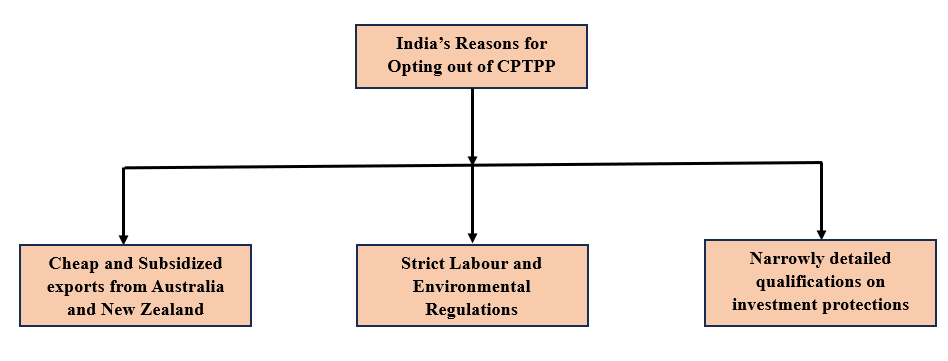- Courses
- GS Full Course 1 Year
- GS Full Course 2 Year
- GS Full Course 3 Year
- GS Full Course Till Selection
- MEP (Mains Enrichment Programme) Data, Facts
- Essay Target – 150+ Marks
- Online Program
- GS Recorded Course
- NCERT (Recorded 500+ Hours)
- Polity Recorded Course
- Geography Recorded Course
- Economy Recorded Course
- AMAC Recorded Course
- Modern India, Post Independence & World History
- Environment Recoded Course
- Governance Recoded Course
- Science & Tech. Recoded Course
- International Relations and Internal Security Recorded Course
- Disaster Management Module Course
- Ethics Recoded Course
- Current Affairs Recoded Course
- CSAT
- 5 LAYERED ARJUNA Mentorship
- Public Administration Optional
- ABOUT US
- OUR TOPPERS
- TEST SERIES
- FREE STUDY MATERIAL
- VIDEOS
- CONTACT US
UK SIGNS TREATY TO JOIN CPTPP
UK SIGNS TREATY TO JOIN CPTPP
17-07-2023
Latest Context
Recently, Britain formally signed a treaty to join a major Indo-Pacific bloc through the Comprehensive and Progressive Agreement for Trans-Pacific Agreement (CPTPP) with an objective to grow the country’s economy and provide access for British businesses to a market of over 500 million people.
Comprehensive and Progressive Agreement for Trans-Pacific Agreement (CPTPP)
-
Introduction
- CPTPP is Free Trade Agreement (FTA) between Australia, Brunei Darussalam, Canada, Chile, Japan, Malaysia, Mexico, Peru, New Zealand, Singapore and Vietnam.
- It was signed by 11 countries on 8 March 2018, in Santiago, Chile.
2. Background
- In 2005, a small group of Pacific Rim countries comprising Brunei, Chile, New Zealand, and Singapore signed a trade agreement that led to the formation of the Trans-Pacific Partnership (TPP) consisting of 12 nation-states.
- After the withdrawal of the US, the remaining eleven signatories, known as the TPP-11, continued talks and their efforts led to the formation of CPTPP.
3. Significance
- It removes 99% of tariffs on goods and services in the same way as the original TPP did. Moreover, all the member countries made a consensus to cut down on wildlife trafficking which helps elephants, rhinoceroses, and marine species the most.
- It also helps in preventing environmental abuses, like unsustainable logging and fishing. Those countries that do not follow the rules will face trade penalties.
Benefits of the CPTPP for the U.K
- It will lead to zero tariffs on more than 99% of British exports, including key markets such as cheese, cars, chocolate, machinery, gin, and whisky.
- It is expected that this deal will add GBP 1.8 billion (USD 2.2 billion) annually to the U.K. economy in the long run which will be a modest boost of 0.08% to GDP.
- It will be a "gateway" for the UK to the Indo-Pacific region, which is expected to account for a majority (54%) of global economic growth in the future.
- The U.K. will have a veto on whether China joins the treaty as a CPTPP member. U.K. firms will not be required to set up a local office to provide services and will be able to operate on a par with firms in host countries.
India's Stand on CPTPP
- In the agricultural sector, farmers will continuously face growing risks because of subsidised and cheap agricultural exports, particularly from Australia and New Zealand. Therefore, India kept itself away from CPTPP.
- India has chosen to keep itself out of CPTPP because it wants to impose strict labour and environmental regulations on its partners. In addition, India’s manufacturing sector may not be able to face import competition in a duty-free regime.
- It comprises narrowly detailed qualifications on standards for investment protection, provisions to protect the host state’s right to regulate, and the imposition of detailed transparency requirements.

Must Check: IAS Coaching Centre In Delhi



